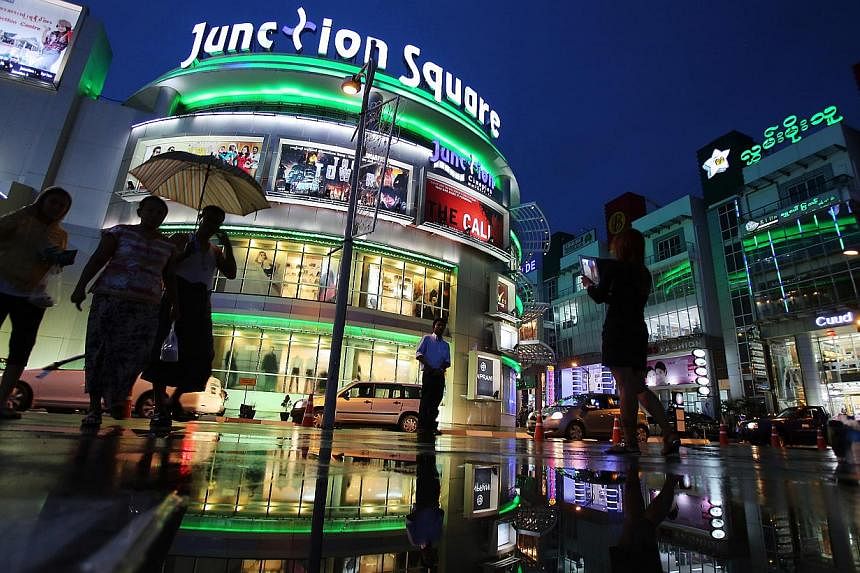Myanmar has recently opened itself up to the outside world after long years of self-imposed isolation. In 2010, the military junta organised a general election, the first in 20 years, paving the way for the beginning of seemingly serious democratisation. Around the same time, democratic icon Aung San Suu Kyi was released from a lengthy house arrest.
While many observers remain uncertain whether the ongoing reforms are real or just cosmetic, it is undeniable that Myanmar is moving towards greater openness.
In this process, the influx of foreign direct investment has had an immense impact on the country and the people, for better and for worse.
Myanmar is a country blessed with abundant natural resources. From precious stones and raw materials to natural gas, the country has always been of interest to foreign investors.
Now that Myanmar is embracing an open-door economic policy, foreign direct investment could further promote democratisation.
It could also stimulate the economy, improve the livelihood of the people and prepare Myanmar to participate fully in the Asean Economic Community to be established next year.
McKinsey reported last month that Myanmar's gross domestic product could quadruple to about US$200 billion (S$250 billion) in 2030 from US$45 billion in 2010 with an annual growth rate of 8 per cent. That may help to lure US$170 billion in capital inflows, including foreign direct investment totalling US$100 billion. This would be more than twice as much as Myanmar had attracted in the previous 20 years.
The Myanmar government has already begun adjusting its policy towards foreign direct investment.
It has allowed more political freedom and loosened controls over the economy, luring in large conglomerates such as Ford Motor and Coca-Cola.
Signed in 2012, the new Foreign Direct Investment Law embraces a range of breaks for financiers. These include tax holiday periods, relaxation of foreign ownership rules, and offering the option of land purchase for the purpose of investment.
Prior to the signing of the law, Ms Suu Kyi appealed to investors and potential investors "to put a premium on respect for the law, on environmental and social factors, on the rights of workers, on job creation and on the promotion of technological skills". She believed that this approach would lead, in the long run, to greater benefits for all concerned.
Myanmar's labour force, numbering 31 million, could gain the most from incoming capital investment.
The first-ever nationwide survey of income and employment last year revealed that unemployment in the country could be as high as 37 per cent, with more than a quarter of its 60 million people living in poverty.
Foreign direct investment does not just mean more jobs. It also gives workers the opportunity to learn new skills. This is particularly so in core industries with high growth potential and higher productivity. Such skills transfer will help sustain capacity building among the working population.
Closely monitored by groups of non-governmental organisations (NGOs) and civil society organisations, foreign companies have been asked by NGOs to practise corporate social responsibility. They are expected to provide schooling and health facilities for the population in their project areas.
A Thailand-led mega project involving the construction of a deep-sea port and industrial estates in Dawei, in the south of Myanmar, exemplifies how corporate social responsibility is crucial for bettering people's livelihood as more foreign investment enters the country.
Foreign direct investment will also reconnect Myanmar with the global economy and re-engage it with the global supply chain.
But not everything that flows from foreign investment is good. Activists have pointed, in particular, to serious problems stemming from foreign investment in mega projects.
The appropriation of land for large projects such as gas pipelines, and the impact of dam construction on Myanmar's major rivers, involving the relocation of villagers without adequate compensation, are often cited in relation to the negative effects.
In the northern Shan state bordering China, local residents complain that many Chinese companies have used their intimate relations with Myanmar's central government to force relocation of homes so as to build factories. Similarly, local residents in Dawei have been forced off their land to pave the way for the construction of highways linking the country with Thailand.
In both cases, the authorities seem to have turned a blind eye.
While the opening up of Myanmar's economy has created many business opportunities, it has also generated myriad economic and social problems.
These problems will not be fixed overnight. But they require tough action on the part of the government to minimise the exploitation stemming from foreign direct investment.
The writer is associate professor at Kyoto University's Centre for South-east Asian Studies.

